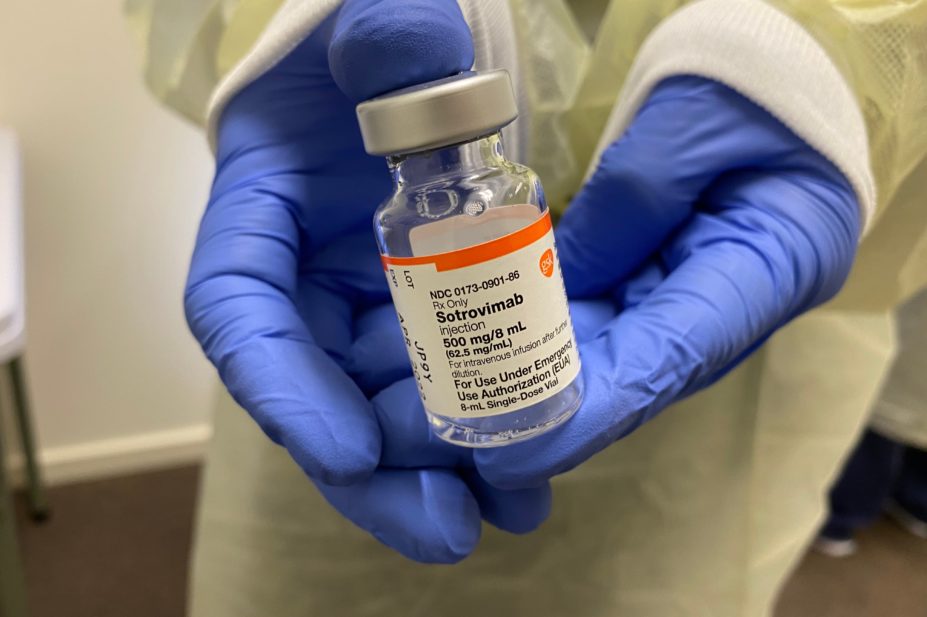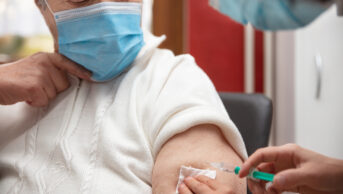
Shutterstock.com
Sotrovimab, a monoclonal antibody used to treat COVID-19 patients, has been linked with a drug-resistant mutation, according to a study conducted in Australia.
Some patients developed the mutation shortly after treatment, making the drug ineffective against the virus.
The findings highlight the importance of carrying out stewardship of monoclonal antibodies in order to reduce the risk of transmission of potentially resistant COVID-19 variants in the community, the researchers concluded.
According to a letter published in the New England Journal of Medicine (NEJM) on 9 March 2022, the researchers reviewed the first 100 consecutive patients who had received sotrovimab at healthcare facilities in New South Wales, Australia, during the Delta variant COVID-19 outbreak between August 2021 and November 2021.
Of these patients, eight continued to test positive for COVID-19 after treatment with sotrovimab.
Genomic analysis of respiratory tract specimens taken from these patients revealed that four of the eight patients had acquired a resistant mutation within 6–13 days of receiving the treatment. Cultures obtained from these patients remained positive for the SARS-CoV-2 virus for 23, 24, 12, and 15 days, respectively, after they had received sotrovimab.
“These data show the persistence of viable SARS-CoV-2 in patients after sotrovimab infusions and the rapid development of spike gene mutations associated with high-level sotrovimab resistance in vitro,” explained lead author Rebecca Rockett, senior research fellow at the Sydney Institute for Infectious Diseases, University of Sydney.
“These findings underscore the importance of stewardship of monoclonal antibodies, particularly because sotrovimab is one of the few monoclonal antibodies with retained activity against the B.1.1.529 (omicron) variant,” she continued.
Rockett said that “postmarking genomic surveillance” of patients who receive monoclonal antibodies for the treatment of COVID-19 was “prudent” in order to minimise the risk of both treatment failure and transmission of potentially resistant SARS-CoV-2 variants in healthcare settings and the community.
Al Edwards, associate professor in biomedical technology at the Reading School of Pharmacy, said he did not anticipate that the findings would have “massive clinical impact right now”.
“Luckily we now have a range of different therapeutics to blunt the harm caused by COVID-19,” he said.
“However, it reminds us of the importance for any and all antimicrobials — including the exciting class of therapeutic monoclonal antibodies used to treat acute viral infection — of monitoring for antimicrobial resistance.”
Sotrovimab was the second monoclonal antibody treatment to be approved by the Medicines and Healthcare products Regulatory Agency, in December 2021. Unlike the monoclonal antibody cocktail Ronapreve, which was approved in August 2021, sotrovimab is a monotherapy taken as an intravenous infusion over 30 minutes.
A UK-wide clinical commissioning policy for hospitalised patients, published on 27 January 2022, stated that from 10 February 2020, non-hospitalised COVID-19 patients who are symptomatic and showing no evidence of clinical recovery should be offered either Paxlovid or sotrovimab as a first-line treatment.
For patients who test positive for COVID-19 following their admission to hospital, sotrovimab should be offered as a third-line treatment option only, it advised.


